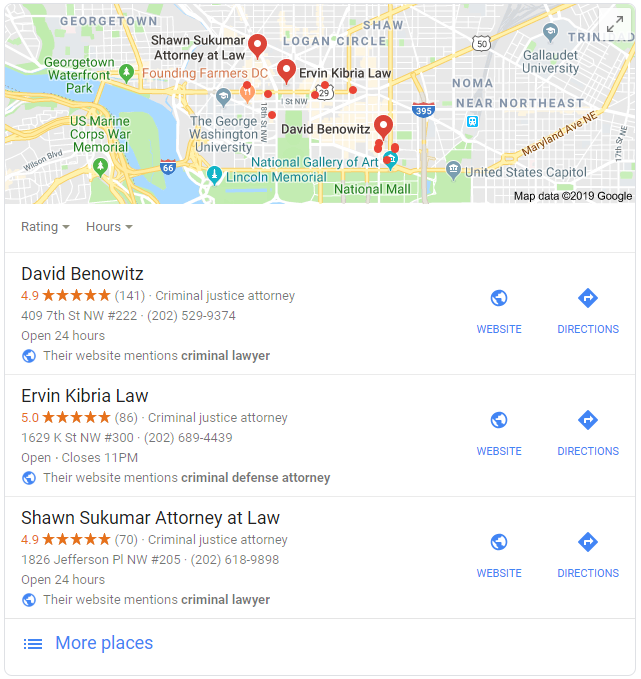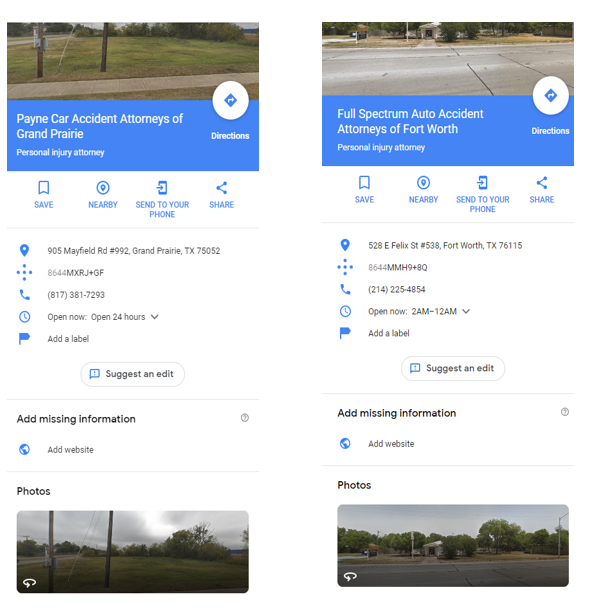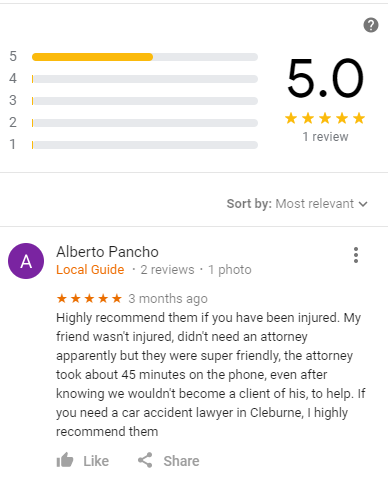Playing Google’s Local 3 Pack Game: Law Firms vs. Spam Networks
Google Business Profile (GBP) can be a great tool for marketers and their clients. With billions of users daily, GBP has the ability to drive massive amounts of traffic to any business website, especially when putting fundamental SEO and SEM tactics in place. The Google Business Profile profile is also essential to ranking in the Local 3 Pack—a section of the Search Engine Results Page dedicated to providing searchers the best three results in the local community.
Unfortunately, local spam networks have been taking advantage of kinks in the Google algorithm by stuffing business names and fake reviews with keywords and achieving fraudulent rankings. Specifically in the legal industry, we have found major spam networks in personal injury and criminal law firm markets all over Texas and Virginia, as well as many other states. Not only do these networks hinder businesses from getting in front of users, they also pollute the user experience.
The Local 3 Pack

Why Local Spam Networks are a Problem
The flood of fake listings makes it difficult for legitimate small businesses and law firms to rank. Businesses have to fight through the spam clutter just to be seen, let alone rank first or second in the Local 3 Pack. Not only is it problematic for law firms and marketing professionals who put time, money, and resources into optimizing their listings based on Google’s guidelines, but it also makes GBP an untrustworthy source of information.
The misuse of these spammy GBP listings by hungry lead generation companies and/or black hat digital marketing SEO companies exposes a weakness in the Google algorithm that needs to be addressed.

Identifying this Spam Network
There are general patterns to tell if a business is fake and a part of this specific spam network. The following are some dead giveaways to tell if a law firm listing is fake:
- Street view: the photos on the GBP listing are of empty parking lots, abandoned buildings, or vacant pieces of land
- The spread of the listings are across different areas of a large but specific geographical region
- There are different phone numbers to ensure the listing is not a duplicate
- There may not be a valid web address or any website at all
- There is no licensed attorney listed on their website if one is listed
- They operate outside of traditional business hours
- There are usually only one or two reviews, and in some cases, zero reviews.

Solutions to this Ongoing Problem
Currently, the only way for someone to notify Google of a fake listing is to flag the business as spam. However, this system is not efficient, as individuals can only flag single listings one at a time instead of entire networks.
Additionally, flagging almost always goes into review and has to be escalated to support. This takes a considerable amount of time, especially when you are talking over chat support and trying to explain the issue to someone who is unfamiliar with the particular spam network.
Connecting the dots for Google so these entry networks can be eliminated is very difficult. Even if someone is successful in getting a fake listing removed, spammers can simply re-verify other listings and continue to expand their network.
With that in mind, here are three takeaways we would like to see Google take under advisement:
- Design a new way to rank that does not reward spam networks for using keyword loaded business names
- Create a method for local guides and experts to report spam networks more efficiently
- Prioritize spam network transparency
Let us know if you see these spam networks in your market. Collaboration with local experts is the best way for us to fix the problem.






